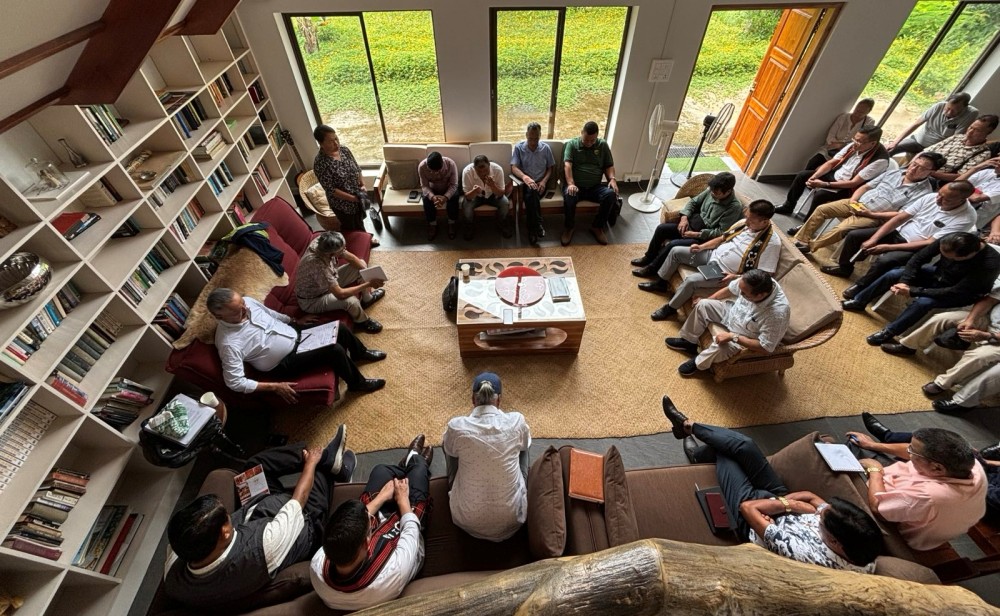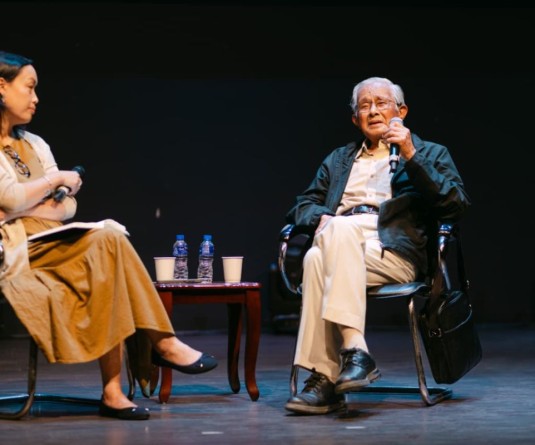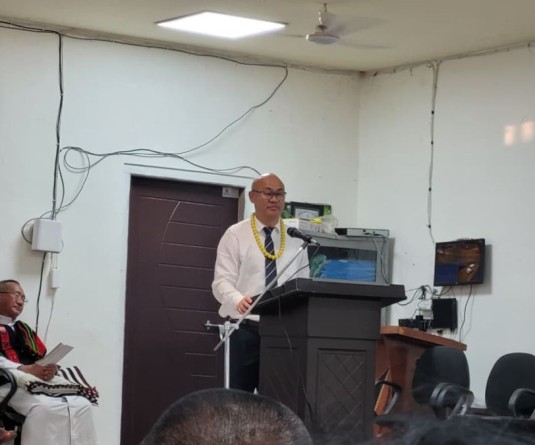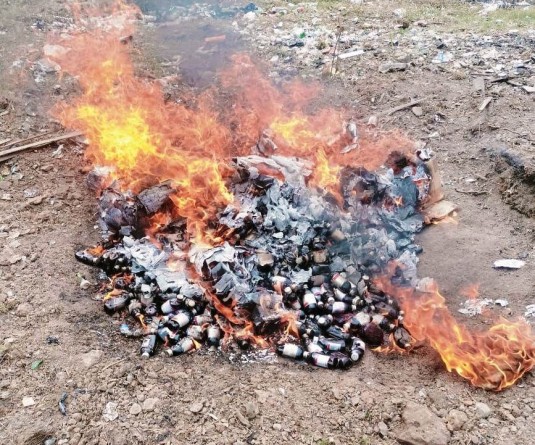UNDER ONE ROOF: Representatives of the Naga Political Groups Naga Tribal Hohos, and the Forum for Naga Reconciliation during a ‘historic' convergence’ in Medziphema on June 24. (Photo Courtesy: FNR)

Adopts three resolutions at historic Medziphema convergence
Dimapur, June 25 (MExN): In what has been termed a ‘historic' convergence,’ the Naga Political Groups (NPGs), representatives of the Naga Tribal Hohos, and the Forum for Naga Reconciliation (FNR) gathered at Medziphema on June 24 and launched a common journey and act toward building ‘The Naga Bridge.’
“This symbolic bridge is not merely metaphorical, but foundationally grounded in the historical and political rights of the Nagas, affirmed in the Simon Commission’s report (1929), the Naga Declaration of Independence (1947), and the Naga Plebiscite (1951),” the FNR stated.
“These rights are not relics of the past, but living testaments to a people’s enduring assertion of identity, dignity, and self-determination,” it added.
According the FNR, the convergence was held in an “atmosphere marked by openness, humility, and a shared longing for the Naga people to advance together—firm in the conviction that the path forward lies in the collective act of building the ‘Naga Bridge’.”
Thus, choosing to resist the temptation of “mere rhetoric” and instead pursuing a path of actionable commitment, the gathering affirmed three resolutions and launched what was described as a ‘common journey’ toward the future.
The first resolution was a collective call for all Naga Political Groups to participate in the forthcoming meeting.
“This next assembly is envisioned not as a repetition of old patterns, but as a watershed moment—an opportunity for inclusive dialogue and coordinated progress toward a shared solution on one common Machan (platform),” the FNR asserted.
The second resolution earnestly appealed to all other Naga Tribal Hohos, regardless of region or affiliation, to extend their moral and cultural support towards the fulfilment of shared Naga aspirations.
“This appeal is made with mutual respect for each community’s distinct identity and legitimate concerns,” it read.
Finally, the June 24 convergence endorsed an initiative titled “A Common Journey,” described as a “pilgrimage of presence, listening, and accompaniment” to various districts and localities across Naga areas.
This initiative aims to deepen grassroots participation, build trust among the people, and foster a shared imagination of what unity looks like in practice, the statement said.
The three resolutions were seconded by 28 Tribal Hohos, including the Tirap-Changlang-Longding People’s Forum, along with 12 Naga Political Groups who attended the gathering, the FNR informed.
‘Commendable self-reflection’
Meanwhile, according to the FNR, the NPGs, through commendable self-reflection, openly acknowledged the human conditions of “fallenness and finitude” and expressed regret for past failures.
“They emphasised the urgent need to converge upon one inclusive common table, transcending factional divisions, to embark on the shared task of bridge-building,” it said.
“This table is envisioned not as a platform of competition, but of communion—where trust is mended, differences are engaged with integrity, and a common journey toward our future is launched,” it added.
Collective voice against polarisation
Further, the Tribal Hohos, in poignant and courageous tones, articulated the danger of persistent polarisation and called upon all parties to transcend divisive habits, the FNR said, with common exhortation such as “This is not the time to put one another down,” or “It is time to lift one another up.”
“Such words remind us that we are not adversaries contending for dominance, but co-heirs of a sacred trust,” the FNR stressed.
“This trust—bequeathed through history, faith, and struggle—calls us to serve a story greater than ourselves: the restoration of our people through truth, justice, and reconciliation,” it added






